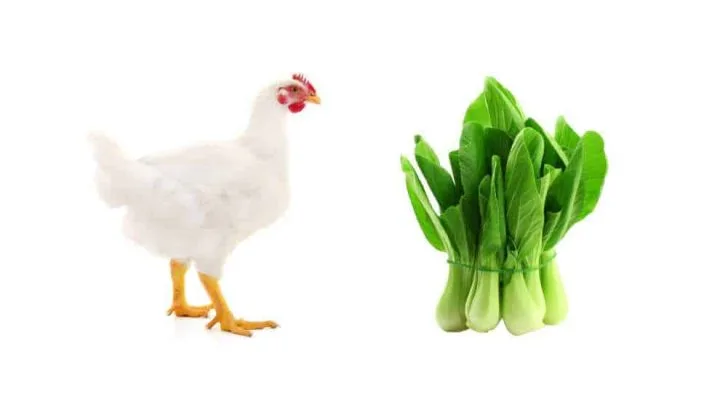There are a number of reasons why people take care of chickens. What is yours? Do you raise chickens as cute & fun pets or for a constant supply of fresh & healthy free-range eggs? No matter your reasons, you should provide your flock with the best possible care, and that includes a healthy diet that will keep your chicks happy and healthy!
The best diet for your chicken should be a mixture of grains, fruit & veggies, and meat. Not all veggies are suitable for your flock, though. Some can be eaten in moderation, but some are toxic and can cause serious issues even when ingested in small amounts.
Today you will find out the answer to a not-so-usual question: Can chickens eat Bok Choy?
Why wait? The short answer is: Yes. Still, there are some restrictions you should stick around and find out about!
Do not worry if this veggie is unfamiliar to you; many American cooks would feel the same way as you. Just keep scrolling, and you will learn everything you need to know about Bok Choy and how to introduce it to your chickens!
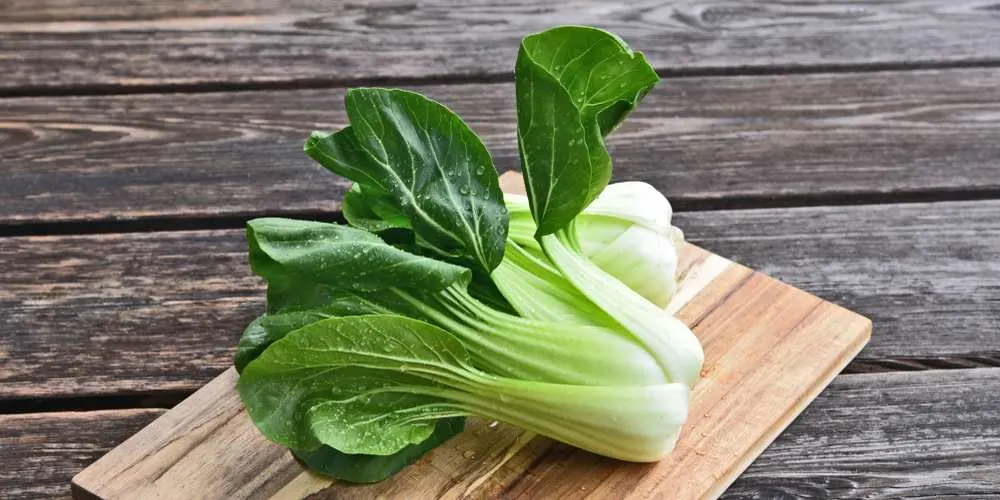
Can Chickens Eat Bok Choy?
Before we move on to find out how your chickens can eat Bok Choy, we should first make sure all of you know what it is. So, let’s find out!
Bok Choy is a round-leafed vegetable that belongs to the family of Brassicaceae or Cruciferae. This family is also known as the mustards or the crucifers. It is easiest to remember it as a member of the cabbage family (even though it looks more like celery to us).
Bok Choy, or if you are British, Pak Choi, varies in size and can grow to be from 4 to 12 inches tall. All of its parts are edible so that you can enjoy the stem and the leaves too.
The Chinese people have cultivated this leafy vegetable for more than 5,000 years. Yet, even though Bok Choy has originated and earned its popularity in southern China and Southeast Asia, this veggie is now grown in Northern Europe as well. It is a winter-hardy vegetable that can handle the harsh European weather quite well. Moreover, it is harvested in California as well as some parts of Canada, so your chickens can enjoy it no matter what part of the world you reside in.
When Is Bok Choy In Season, And How Is It Harvested?
The Bok Choy is in season in spring and fall. It generally does better when the days and night are not too hot, just like all the leafy veggies.
It will take only about six to seven weeks from planting to harvesting since Bok Choy is quite a quick maturing vegetable. You should best harvest it in the morning while it is still cold outside as that will prevent its leaves from wilting.
What Are The Varieties Of Bok Choy?
This type of Chinese cabbage comes in two forms:
- Traditional Bok Choy
Regular Bok Choy is usually pricier, but it is still widely used for stir-fries. It can be eaten raw as well. It has a crisp texture, dark & wrinkled leaves, and a white stem.
- Shanghai Bok Choy
American markets typically sell Shanghai Bok Choy due to its mild taste. It has light green leaves shaped like a spoon and jade green stems instead of white. Shanghai Bok Choy is also less crispy. If you overcook it, it can even become slimy.
How To Choose The Best Bok Choy?
The best Bok Choy is easy to recognize. Simply choose the firmest and greenest one! Fresh Bok Choy always has bright green leaves and firm white stems.
If you are a first-time buyer, we have a piece of advice for you: You should best remember how the Bok Choy looks before you go out shopping for it for the first time! Why? Well, you can find this leafy veggie sold under several different names, such as the already mentioned Chinese White Cabbage and Pak Choi, but also the Chinese Chard and Chinese Mustard Cabbage.
No matter its size or name, it is still a veggie worth trying! It is delicious and healthy – if you eat it in moderation! If you consume too much Bok Choy, it can have some toxic effects and endanger your health.
How To Store Bok Choy?
Bok Choy is best kept in the refrigerator. Store it in the vegetable bin at a temperature of 32 to 36 degrees Fahrenheit. It would be best to pack it up in a paper or perforated plastic bag before you refrigerate it. You should use the stored Bok Choy within three to four days.
Do not wash the Bok Choy before storage. Wash it when you are ready to use it, and it will remain crispy. Separate the leaves and the stems before washing to make sure all the parts are thoroughly cleaned.
How Can You Enjoy Bok Choy?
Both leaves and young stems can be boiled, steamed, or stir-fried. You can microwave it too, even though it is not our preferred method. Whichever method of preparation you choose will take only about two to three minutes. It pairs well with soy sauce and garlic. You can eat raw Bok Choy, too.
Why Should You Limit Bok Choy Consumption?
Bok Choy contains compounds called glucosinolates. In small doses, these compounds are good for us since they help prevent cancer. However, in large quantities, glucosinolates can be toxic to humans and animals alike. People who are already seriously ill should be especially cautious.
The excessive consumption of Bok Choy has been linked to hypothyroidism, too. Some published case studies state that raw Bok Choy releases an enzyme that can inhibit iodine uptake. It is, therefore, not advised to eat large amounts of this veggie over extended periods.
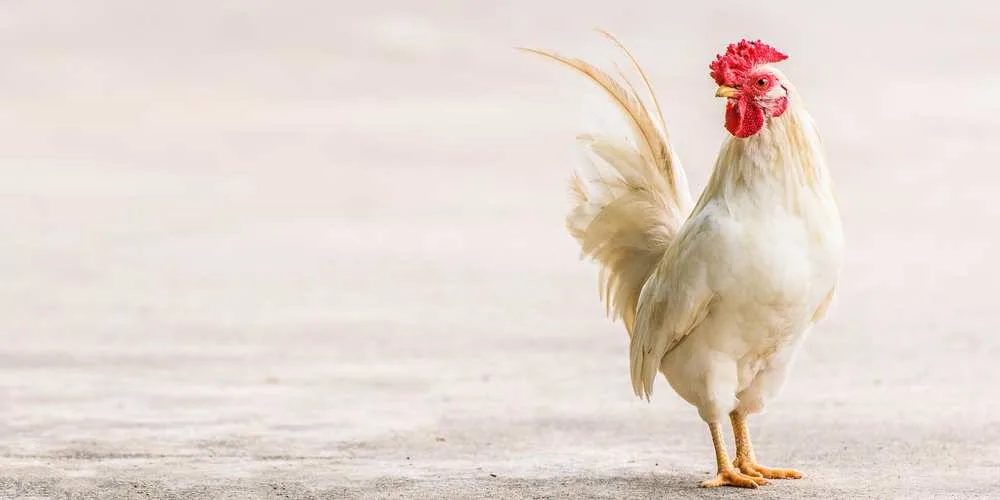
How To Feed Your Chickens With Bok Choy?
Now that you know everything there is about Bok Choy, it is time to find out how you can make it a part of your flock’s diet.
If you start at an early age, your chicks will be easily tamed. The same goes for feeding them. The earlier you introduce them to a well-balanced diet, the easier it will be for both you and them.
Let’s recapitulate what a balanced diet means. It is a combination of grains, fruit, veggies, and some meat. Not all of these are introduced at once.
What about Bok Choy?
We now know that Bok Choy is on the safe list. This means that you can feed your chickens with this green veggie as long as you do not overdo it! Remember that it can be toxic in large amounts, and you are good to go!
If you have baby chickens, you will have to wait a bit before introducing Bok Choy or any other greens to that matter. At first, baby chicks should eat only a starter mix. When they are eight weeks old, you can introduce a mixture of cracked corn & wheat and some fat-free meat. Everything should be broken into small pieces, so it is best to use a food processor.
Greens & veggies are not recommended until the chicks grow older since they can cause diarrhea. When you do begin feeding your chicks veggies, start slowly and gradually – for example, with vegetable scraps.
You can cut a few Bok Choy leaves and mix them up with some carrot peelings to make a colorful mix for your chickens to enjoy. At first, this mixture is best given as a treat rather than an entire meal.
Bok Choy can be combined with other greens such as lettuce, spinach, kale, and cabbage. Cut all of them up, mix them a bit and leave the mixture in the coop for your chicks to peck at their will.
Ensure that the Bok Choy, or any other fruit or veggie you give to your flock, is fresh. Stale food can cause havoc with your flock’s digestive system.
Bok Choy should be given a few times a week. Your chickens should have a varied diet in order to be happy and healthy. It would be best if you also avoided zucchini, pumpkin seeds, or rhubarb leaves, as any of these can cause digestive issues or diarrhea. Therefore, never combine Bok Choy with any food from this list!
There is no need to wash organic Bok Choy, but if you know that Bok Choy has been chemically treated, it should be soaked in water and some vinegar for a couple of minutes before giving it to your chicks.
See Also: Can Chickens Eat Rhubarb?
Why Is Bok Choy Good To Eat?
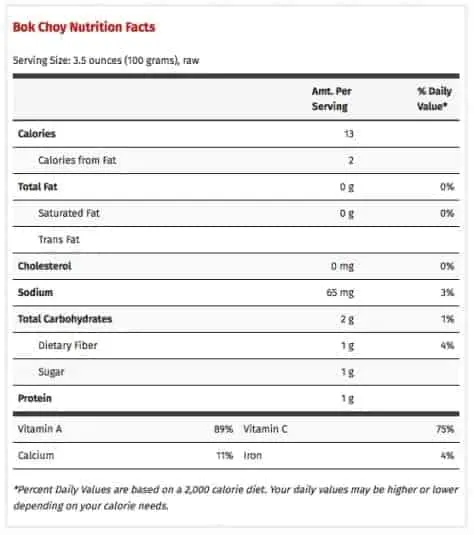
Bok Choy is a superb source of vitamin C. Your Chickens need vitamin C to boost their immunity and keep them healthy. Bok Choy is also rich in dietary fiber. It contains valuable nutrients such as iron, calcium, and folate, too.
This leafy vegetable is a good source of beta carotene too. Bok choy is also packed with vitamin A which is good for your chicken’s eyesight!
INTERESTING FACT: Due to the shape of its leaves, Bok Choy is often referred to as the “soup spoon.”
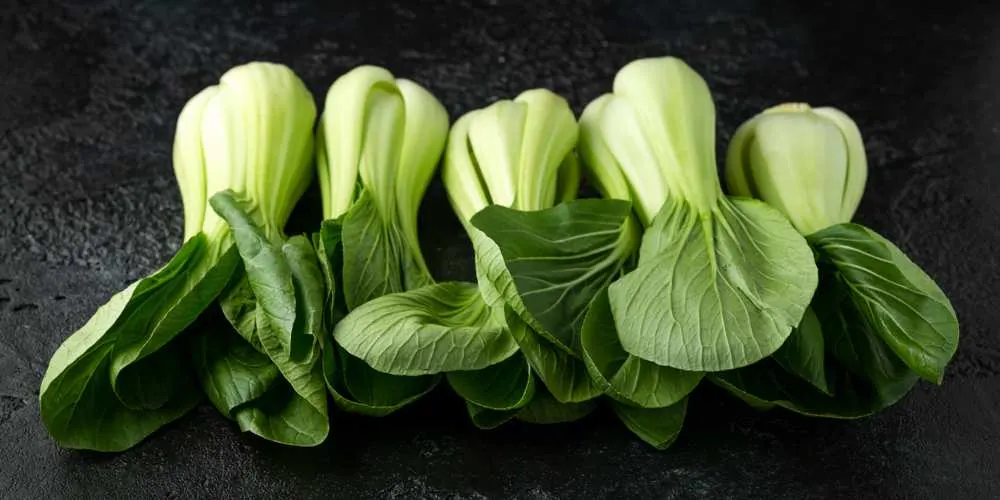
Conclusion
Your chickens can safely enjoy Bok Choy as long as you do not overdo it. There are still no studies that prove Bok Choy is toxic to chickens, but since it can cause health issues for humans, it is better to be safe than sorry.
After all, your flock’s diet should be varied to make sure chickens receive all the nutrients they need!

